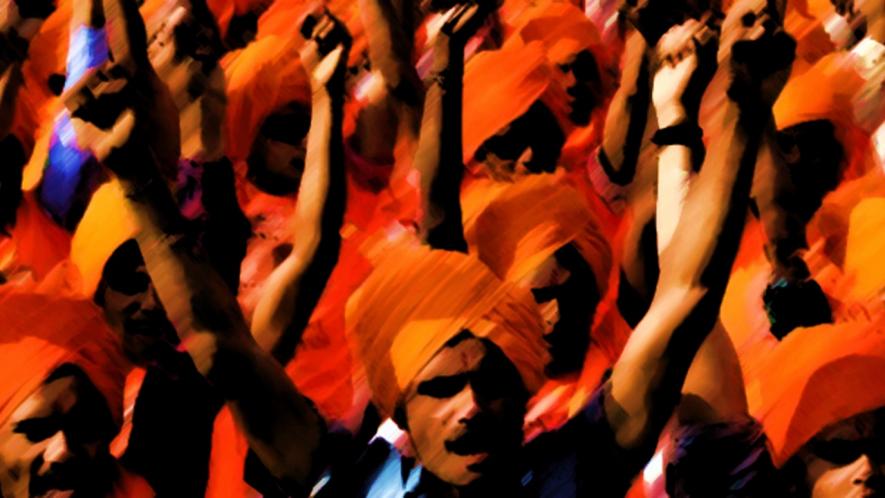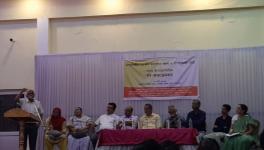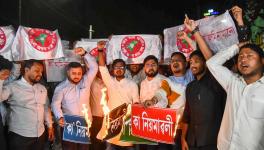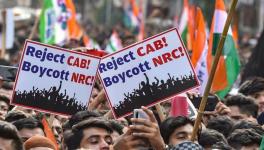Take Power From Majoritarianism and Return it to People

Representational image.
Majorities—higher numbers of any entity in a mixed group—are a fact of social and political life. But majoritarianism without exception is a sociopolitical construction. The trouble is that we have lived in a political and discursive environment where majority turns into an indisputable value. Our childhood onward, we have heard clichés, such as “majority must be granted” and so on. This disarms us of the natural suspicion with which we must approach any concealed majoritarian premise. This ideology permeates a much larger space than communal or chauvinist politics, and if we value democracy, we had better be mindful of it.
We seem to remain unaware of many forms of injustice and discrimination that distort representative democracy where numbers count. BR Ambedkar never won an election on his own because Scheduled Castes nowhere preponderated in any constituency in his native province, and seldom in any large village. But our Constitution-makers, under the influence of Mahatma Gandhi and stewardship of Ambedkar, saw to it that the traditional disabilities they and the tribal people suffered from were redressed somewhat, so that they can claim their rightful place in the nation.
James Madison and other framers of the first written constitution of a modern democracy came up against this problem soon after the first draft of it had been ratified by a majority of the 13 states that united to lead the American War of Independence. But some smaller states were disgruntled and feared that the federal government might browbeat them. They were jolted into awareness of the helplessness of the individual citizen against the congregated power of the federal government. The first amendment following soon after and confirming basic rights of citizens (such as protection from any state sponsorship of religion) as a cornerstone of democracy responded to such fears. Countries such as India have also enshrined these liberties in their constitutions.
In course of time, other kinds of hidden majoritarianism have come to light, but have been swept into a corner by both entrenched power and mental inertia. But democracy or freedom remains deficient if these are not articulated or addressed.
Consider the following two incidents:
I was watching on Doordarshan or some other channel a session of the Lok Sabha in the early nineties. A lone member from a North Eastern state had risen to draw the attention of the House to a matter important to people of the region. The Speaker allowed him to speak for barely two minutes, with a bored expression. Other members were also listless. Then the bell cut him short. He protested, but was duly overruled. For, the star member was waiting his turn to speak.
Former Prime Minister Atal Bihari Vajpayee rose to his feet and there was an electric silence in the House. He began like a classical grand orator with slow cadences, then gathered strength and pace as he elaborated on his theme, ascended to a climax and concluded with a fitting peroration. The spellbinding oratory took all of 30 minutes. I wondered then—and still do—what harm would have fallen on the House if five minutes of that time had been spared for the poor discomfited MP from the North East. But he represented a far smaller number of people.
The other incident is the appalling reported news that 10,000 adivasis have been charged with sedition, presumably for defying and resisting court-mandated eviction notices. They have no rights to the land they have been holding for generations because they have no state papers to prove it. Who or what has given the state the power to dump on their heads the charge of disloyalty to the state? Do they have any stake in this state?
Both incidents, in my opinion, underline certain majoritarian prejudices in the working of our Constitution and laws. These should be more troubling to a lover of freedom than has been the case.
Blatantly communal majoritarianism that flouts the basic tenets of the Constitution rightly causes outrage. The fight to rescue the Constitution from the clutches of creeping fascism has begun. But it should not stop halfway with a “rotten compromise”, ushering in another round of liberal laxity and shamefaced abuse. The power has to be returned to the hands of the people conscious of their rights, at every level of our multi-layered polity. Hence, other kinds of inarticulate but practically damaging majoritarianism must be examined with an open mind and remedied.
A certain kind of new majoritarianism appeared in full force in the responses of leaders cutting across party lines to the abrogation of Article 370 without consulting the people of Kashmir. Incredibly, it was hailed as the opening of a new chapter in the history of the state. This did not stem from a communal bias, but from a hegemonic and homogenising view of the nation. Which effectively overrules a key constitutional principle, i.e. federalism.
Underlying the principle of federalism is respect for distinct and different regional identities constituting the Indian nation.
The plea to annul the National Register of Citizens or NRC that is nearing completion in Assam is yet another example of such hegemonic ambitions trampling down regional concerns. These critics blithely pass over regional specificity in a bid to construct a terrestrial liberal discourse and trumpet the virtues of the latter over the alleged meanness of the former. It apparently bothers them little that the NRC in Assam happens to be the only protective shield for Muslims there, in the throes of anxiety about their citizenship under the looming threat of Hindu Rashtra.
They argue that migration has always worked for the good of societies world over. Have they heard of complete extirpation of the original inhabitants of West Indies by European migrants? Of Israeli genocide against Palestinian Arabs? Or of millions of indigenous Americans hunted down by American ‘conquest of the West’?
Is it any wonder that various indigenous Assamese ethnic communities, under oppressive pressure of a situation where the average density of population of the state exceeds that of the country, unemployment is at an all-time high, per capita ownership of land and index of development are among the poorest in the country, feel alarmed that they might be pushed to the brink of extinction by an extraordinary surge in numbers of citizens under a revised nation-wide NRC and the Citizenship Amendment Bill? So much for the virtues of open borders.
The writer is a sociopolitical commentator and literary critic. The views are personal.
Get the latest reports & analysis with people's perspective on Protests, movements & deep analytical videos, discussions of the current affairs in your Telegram app. Subscribe to NewsClick's Telegram channel & get Real-Time updates on stories, as they get published on our website.
























